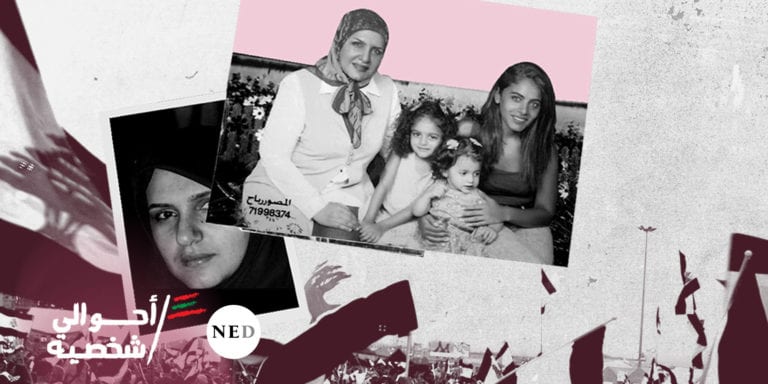“The real mujahideen are those in Afghanistan. As for the Palestinians and the Lebanese who die for the land, they’re not going to heaven, I’m telling you.”
I still remember what she said, as if I was hearing it right now.
It was my religion teacher in middle school in the early 1980s, who said this to us very sharply. She looked at me from behind her thick glasses and spoke to me and my classmates in such a decisive manner, after I had raised the issue of resistance against the Israeli invasion and occupation of Lebanon in 1982.
I was living with my family in Jeddah in Saudi Arabia at the time. I was a young teenage girl enthusiastic about the stories that we received from south Lebanon, which I would spread among my classmates at the private girls’ school where I was studying. That day I had told them about the young women who launched military operations against Israeli targets.
The teacher, who overheard me, was keen to take the discussion from the “land liberation” theme to the “jihad” genre instead. According to her, the only true jihad was the one taking place in Afghanistan; as for the excited Palestinians and Lebanese people (who weren’t Islamists at this stage), fighting to free their occupied lands, what they were doing wasn’t really enough to gain God’s blessing. I remember feeling disappointed, for even though I was excited for them, God wasn’t going to accept their sacrifices.
This was the beginning of my memories about Afghanistan.
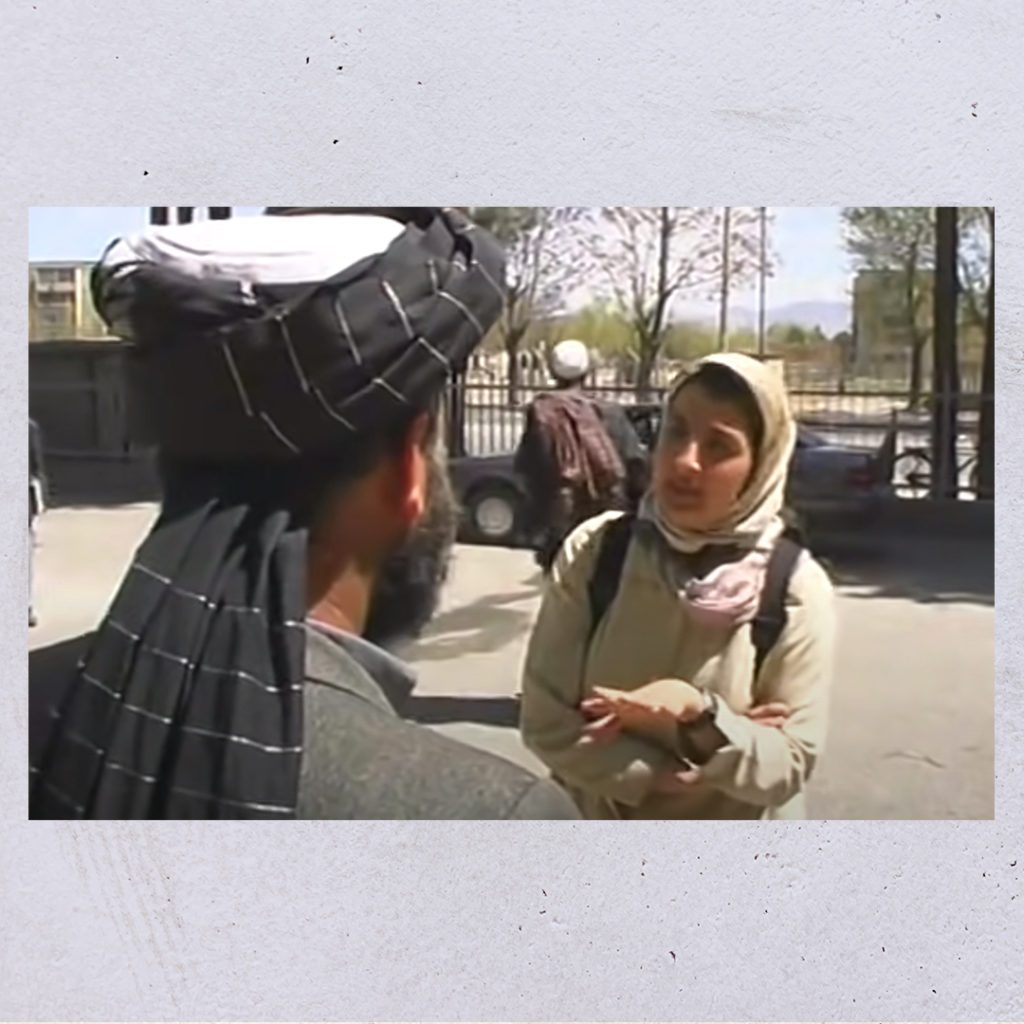
News of the “Mujahideen” facing the Soviet occupation filled the Saudi news bulletins. It was an era of completely closed media, and Afghanistan seemed to me nothing more than a distant, mysterious country.
At the same time, an American women’s delegation visited us to see our school for modest girls, one completely segregated from our male colleagues. The principal at that time made sure that they would visit our classroom and listen to a schoolmate of ours as she recited the Qur’an, her voice undoubtedly sweet. Of course, the American visitors did not understand anything, but they distributed fleeting smiles and left nonetheless.
During childhood and adolescence, it is common that we ask existential and philosophical questions. For me, my “naive” wonderings were of an innate feminist nature, as they were sensitive to my self-awareness as a female, and to the discrimination against me and my gender in terms of dress, role, and power relations within family and society. I was always unconvinced by the answers that attempted to justify the preference of men over women, nor those justifications that attempted to decorate the cages and locks that lock the women inside.
Women’s rights were not a popular discussion as they are today, and the American immigrants who visited our classroom acted as if they were wandering around touring a public park. They resembled American politics at the time, fake smiles that concealed oil deals and economic interests that overlooked everything else.
The comments were repeated by successive religious teachers, exalting the “Mujahideen”. Some of them passed on opinions that infuriated me, especially when one of them asserted that the Lebanese war that erupted during that period was a “punishment” from God for the “immorality” that the people of my country committed.
It was difficult to discuss anything with my religion teacher, because she had knowledge of absolute truth, and nothing I said made a difference.It was difficult to discuss anything with my religion teacher, because she had knowledge of absolute truth, and nothing I said made a difference.
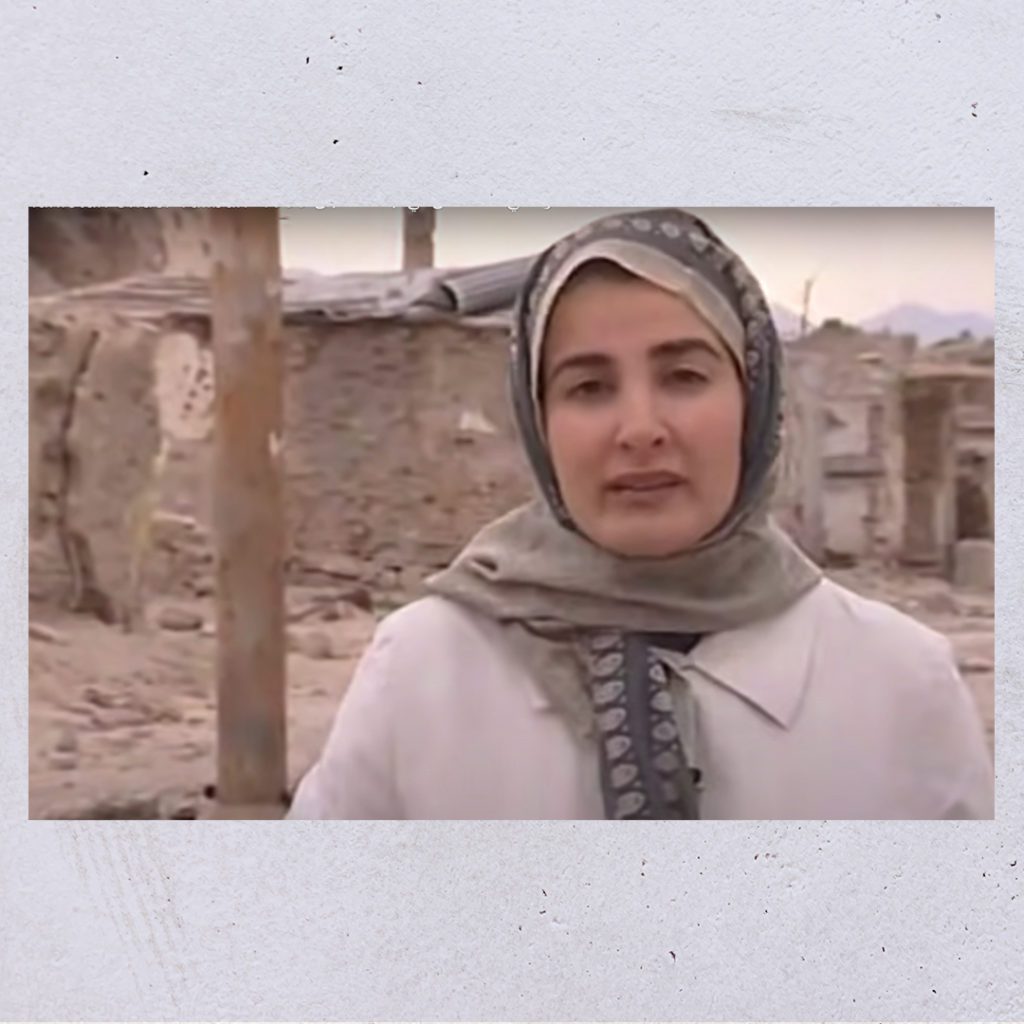

It was then that I began to pay attention to the news from Afghanistan. I didn’t see Afghan women at the time, not even on the screens. The women seemed to be totally out of the picture, one of bearded men in bleak local garb carrying many weapons, greeted by heads and praised by leaders as “mujahideen” and “freedom fighters”.
It was the era during which jihadist organizations backed by the United States and Saudi Arabia developed to confront the Soviet Union during the Cold War. But later the course of these organizations developed, and their loyalties, as well as the sources supplying them with money and weapons, branched out. So, Al-Qaeda and the Taliban would later take control of Kabul, and their practices would dominate Afghan minorities and opponents, and women would pay a very heavy price.
This escalation happened to coincide with my family’s move to Lebanon, where I studied journalism during the last years of the war, and began my work the year the war ended, in 1991. The war ended with a regional political settlement that pardoned the warlords and enacted them yet again as Lebanon’s leaders, just as Iran and Syria had essentially become dominant in the course of the Lebanese events.
Journalistic work in Lebanon was governed by post-war politics.
Between the complexities of journalistic work under the restrictions of Syrian guardianship, and my journalistic and feminist ambitions, I began traveling around the region.
In the mid-nineties, the control of the Taliban grew with the support of Pakistani intelligence, taking advantage of its tribal extensions and the intersections of the Gulf policies at the time.
Soon, violent scenes of killings, executions, stoning of women, excluding them from public life and confining them to homes for marriage and childbearing quickly began to surface.
The danger of the scene there was compounded by the Taliban’s embrace of the a very wanted man at the time, al-Qaeda leader Osama bin Laden, and his followers who later carried out the September 11 attacks.
About a year before those attacks, in 2000, I went to Pakistan, during the beginning of my attempts to deal with the Afghan embassy there to enter Kabul. I received funny responses, consistent with a religious culture that many women were brought up within in many Arab and Islamic societies. The employee there had asked me to bring with me a male “mahram”, whether it be my father, brother, or husband, to accompany me and allow me to enter.
I made fun of him in secret, but I did not give up. I later went to the “Haqqani School” in Peshawar, in northern Pakistan, a school where the leaders of the Taliban had graduated from, and where thousands of young men from Pakistanis, Afghans and various Islamic countries received strict religious teachings, especially regarding women and public life.
At that time, I met Mawla Sami-ul-Haq, a well-known Pakistani cleric, the head of the Al-Haqqani School, which was founded in 1947. The founder of the Taliban, Mullah Omar, had also studied there, which you could tell by the fact that Sami-ul-Haq was nicknamed “The Father of the Taliban”. He had become incredibly famous during the Afghan jihad against the Soviet occupation. Most of the members of the Taliban Shura Council were former students of his school, funded by Gulf and Islamic countries. The school’s influecne was strong, and supported by Pakistani intelligence.
Sami al-Haq was fluent in Arabic and allowed me to record a video interview with him, even though at the time, the Taliban had prohibited cameras and photography and considered them taboo. In the interview, Sami al-Haq expressed to me the “significance” of the Taliban, the “morals” of its elements, and their strength in defeating the Soviet “occupation” and confronting America.
But what was told on screens, podiums, and in interviews was quite different from what was actually happening. After the interview, Sami Al-Haq allowed my colleagues to photograph the school where the boys were taught that women should be “protected” at home and not allowed out, and that music, television, and photographs were forbidden and an abomination from Satan.
While my crew was filming the students, Sami Ul-Haq invited me to his house next door to meet his wife and children. When I entered his home, I was surprised by a television set in the middle of the house, then his telling me with a smile that he would follow up with the Lebanese television channels. He introduced me to his second wife (because the first, he said, had grown old), and when the headscarf he had asked me to wear during the interview slipped off, he was quick to tell me that I had no need to adjust it as long as I was with his family in his house. This was even though he was present, and presumably he should not have accepted this, since he was a committed religious man.
Sami-ul-Haq was a common representation of the clerics and politicians who did not practice what they preach. He did not see anything wrong with establishing strict teachings about women and freedoms while he lived a double life at home. Sami Ul-Haq continued to run the most famous Taliban school in Pakistan until his assassination in 2018.
That visit was the key to my entry to Afghanistan.
Sami Ul-Haq did me a favor, and at his intervention with the embassy I was allowed to obtain an Afghan visa and enter Afghanistan: nothing less than a journey into the unknown.
I entered via Peshawar, Pakistan. The mountainous border is long, primitive and poorly paved. I was on an exhausting journey through bumpy roads, accompanied by our cute Afghan translator who speaks Arabic, while our driver listened to a famous local singer. As we approached Taliban checkpoints however, he would replace the tape with one of the Quran. On the checkpoints hung other cassette tapes that were “executed” by the Taliban.
Bluetooth had not yet been invented.
Will those scenes really return to Afghanistan?
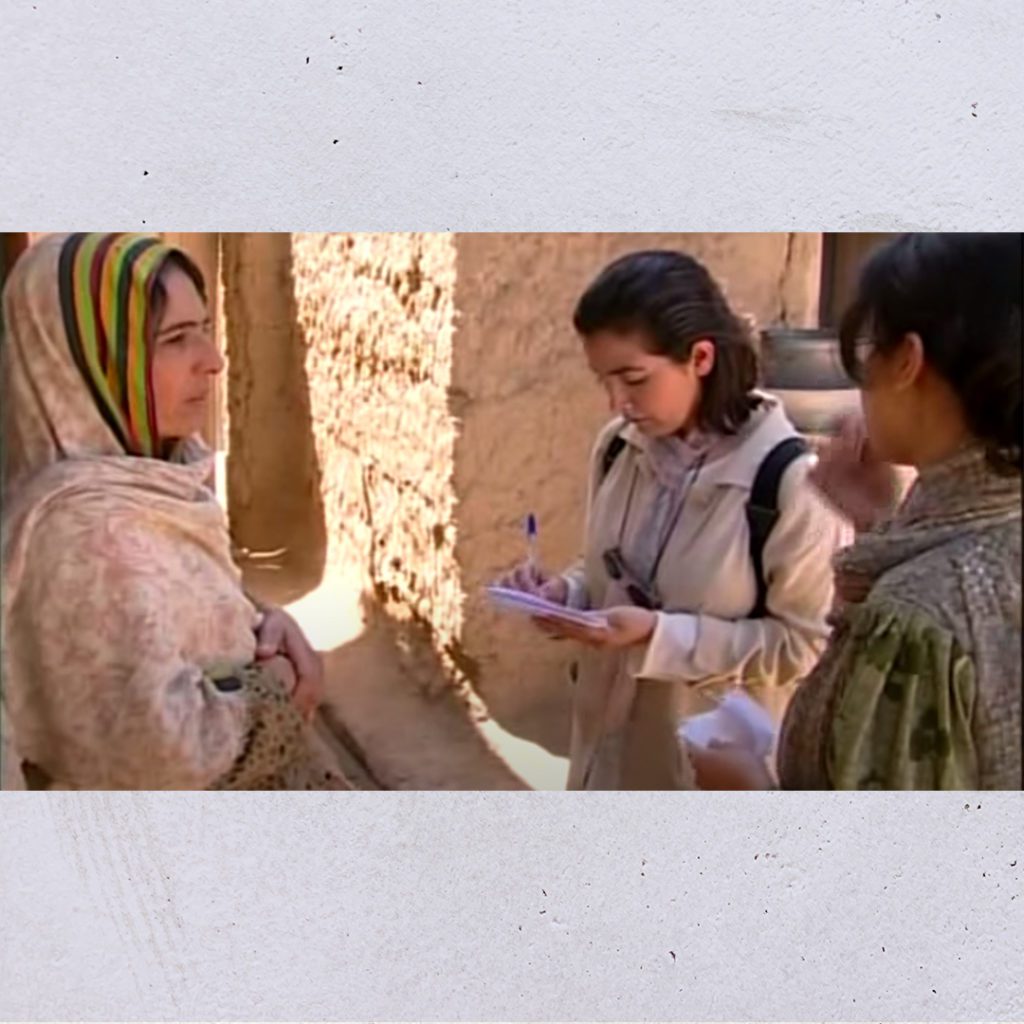

It is very difficult not to invoke a comparison amid this torrent of images coming from there today, after the Americans withdrew and the Taliban regained its strength and control, enforcing practices that mimic its behavior 21 years ago.
The years of Taliban absence had established a different scene for relations between states. The “war on terror” caused a major setback to the principle of human rights, with perpetuating violations under the auspices of Western “democratic” regimes, that set Afghanistan and the region back decades in time.
After the Taliban fell into the war in 2001 and the Afghans regained some of their breath, Washington’s attention shifted to Iraq to plunge into a bloody war that changed the face of the region and the world until today. The fall of the Taliban at the time was not truly complete.
Washington adopted a policy based militarily on drones that killed thousands of Afghan civilians, and administratively formed a corrupt and unqualified Afghan government and administration that contributed to keeping many Afghans under the umbrella of the Taliban.
The sight of Afghans flocking to hastily departing planes and some falling from the sky was not an overreaction surrounding their future.
In the past few years, Qatar, for example, returned to the forefront of the Gulf scene. The glorious image the Saudi media used to broadcast of the Afghan Mujahideen is being replayed today with unparalleled malice by Al-Jazeera, which played a role in marketing the Taliban as “moderate”.
Today I find myself recollecting my memory of my Afghan and Pakistani travels with all their details, as if I were seeing them again, but with a darker lens.
The photographs of curtains separating the university students in Kabul from its female students, took me back to the university I had visited, whose professors said that girls and women should be at home, since the educational facilities were solely for males. In 2000, Kabul was engulfed in its destruction, misery and darkness, and when I arrived, I found it lonely and silent. In the hotel, the management insisted that I stay in a solitary room far from my journalistic team. I was the only female, and I spent a restless night in a secluded room with no TV nor music. The silence that night was so loud in my ears that I felt like I was going crazy.
In 2001, after the fall of the Taliban, I attended a party for an Afghan band that celebrated its return to singing and playing music. Today, as soon as the Taliban regained control, they smashed musical equipment at the Kabul Higher Institute of Music.
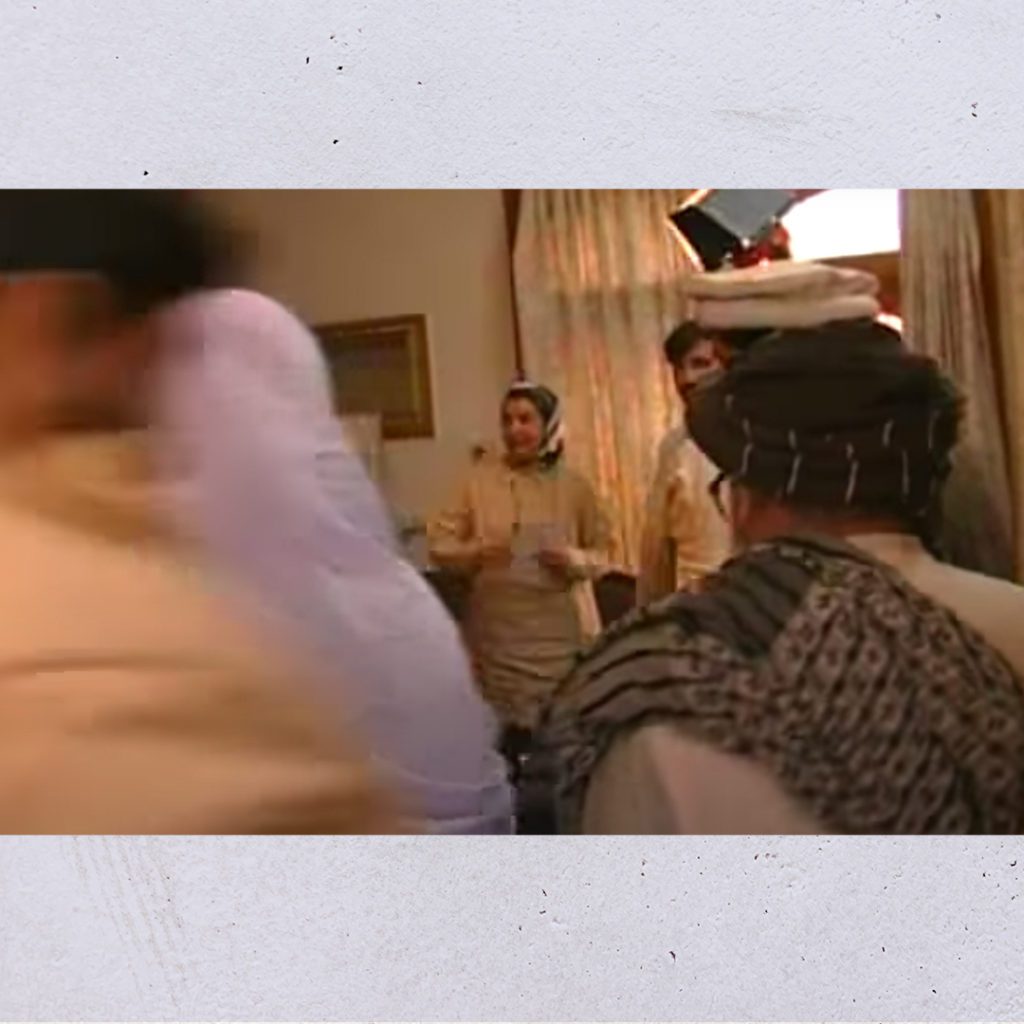

The many incidents of harassment that I faced by officials and clerics, are an echo of the same faces who want to lead the country today. Here they are flogging women because they demonstrated their refusal from exclusion, after they paid in blood through the assassinations and the murder of many activists during the past few years.
How can I forget Maryam, the Afghan refugee who fled to Peshawar, Pakistan, after the Taliban kidnapped her husband. She left trying to save her two young daughters from the prospects of a bleak future, such as a forced marriage to a Taliban gunman.
“Life under the Taliban means we are nothing,” Maryam told me at the time.
A few days ago, journalists were flogged and tortured for filming a women’s protest.
It brought me back to a Taliban official who once told me in Kabul: “Welcome to Afghanistan, you can film whatever you want, unless they’re living things.” He said it in English at the time, and meant that I could photograph mountains, roads, and buildings, but not people nor animals, because that was “haram.”
Today is not the same as yesterday, but will Afghan women and Afghans in general succumb to the same fate as 21 years ago?
Yes, the Taliban has indeed changed: it has become more adept at employing Western media to promote its agenda, aided in this by a miserable world and leaders who are indifferent to their so-called democratic values and human rights.
The reality on the streets of Kabul tells a different story.
Do those who celebrate the Taliban for nothing but to record a victory over the United States understand the meaning of a woman returning to wearing the burqa after taking it off for two decades? Do they understand what it means for them to prevent a woman from going out, working and living as she wants?
During their formerly brief reign, the Taliban astonished the world with the cruelty of their regime. Floggings, public executions and the oppression of women were the hallmarks of this period.
During the past two decades, many examples of the persistence and reproduction of the same practices have been provided across many Islamic groups in the region. Let us not be deceived, the Taliban and its ilk are a disaster for women, and this disaster is compounded by the fact that we live in a hypocritical world ruled by bastards.
إقرأوا أيضاً:
Read Also:
No posts

